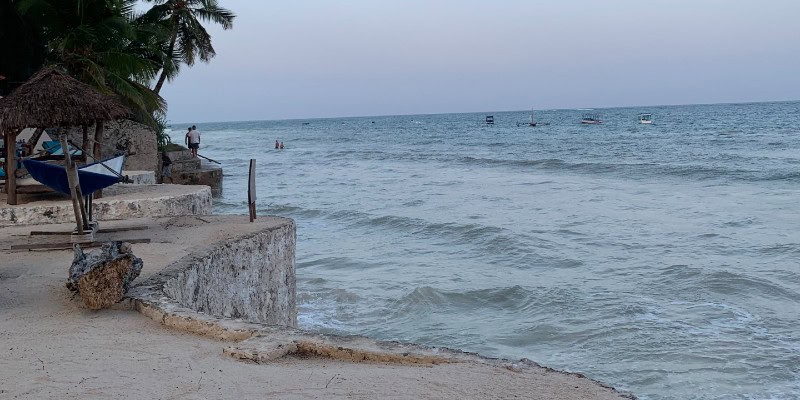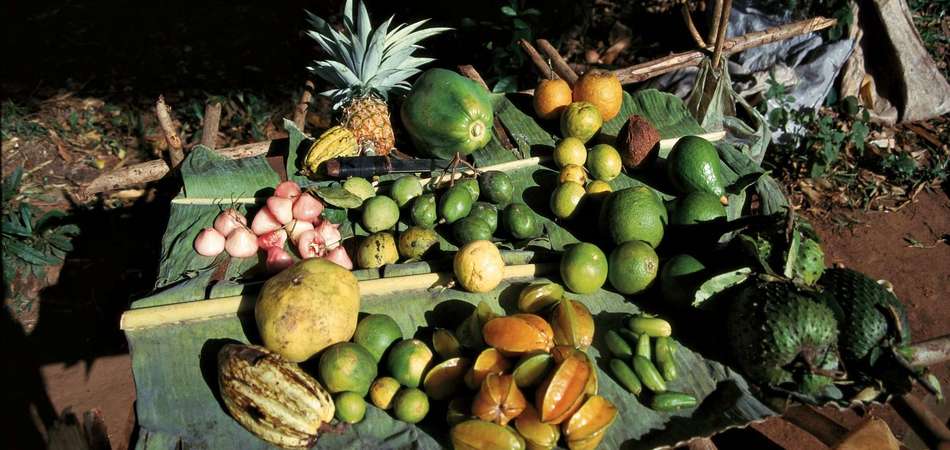Spice farm, cooking class and zanzibar village tour
Tour snapshot
6 Hours
20 persons
Tanzania Zanzibar
Day Trips
Overview
When visiting Zanzibar, one of the most enriching experiences you can have is embarking on spice farm tours, participating in cooking classes, and enjoying a Zanzibar village tour. These immersive activities provide a deep insight into the island’s vibrant culture, culinary heritage, and agricultural practices. This article explores the charm of spice farms, the excitement of cooking classes, and the authenticity found in village tours.
Exploring Zanzibar’s Spice Farms
Known as the “Spice Island,” Zanzibar boasts a rich history tied to the global spice trade. A spice farm tour is a must-do for travelers seeking to understand the cultivation of exotic spices like cloves, nutmeg, cinnamon, and vanilla. Most spice farm tours are guided experiences where visitors stroll through verdant plantations, learning about the growth processes and culinary uses of these aromatic treasures. Guided by knowledgeable local farmers, you’ll gain insights into age-old agricultural techniques passed through generations.
During your visit to a spice farm, engage your senses as you smell and taste fresh spices directly from the plants. For example, rubbing a clove between your fingers allows you to experience its aromatic oils, a sensory delight absent from pre-packaged spices. Many farms also showcase the harvesting and processing methods of these spices, enhancing your appreciation for the effort required to bring these flavors to your kitchen.
Moreover, spice farm tours often highlight the cultivation of tropical fruits and medicinal plants. You may get the chance to sample exotic fruits like jackfruit or durian while learning about their health benefits. This holistic view of agriculture emphasizes the ties between food production and local culture, making it a must-visit for anyone interested in sustainability and cuisine.
Participating in Zanzibari Cooking Classes
After your enlightening spice farm tour, consider joining a cooking class to dive deeper into traditional Zanzibari cuisine. These cooking classes are typically held in local homes or community centers, creating an intimate atmosphere where you can learn directly from skilled cooks. Fresh, locally sourced ingredients—many from the very spice farms you visited—are at the heart of these culinary lessons.
In these hands-on cooking classes, you’ll explore iconic dishes such as biryani, pilau, and an array of seafood recipes that celebrate Zanzibar’s coastal roots. Participants get to chop vegetables, mix spices, and prepare meals under expert guidance, enhancing both their culinary skills and sense of community as they share experiences while cooking.
Cooking classes also delve into the cultural significance of various dishes. Participants may learn how specific spices are integral to ceremonial meals or family gatherings, enriching the overall cooking experience and emphasizing the role of food in Zanzibari society. By the end of the class, you’ll enjoy a communal meal featuring the dishes you helped prepare, providing a satisfying conclusion to your culinary journey.
Immersing in Zanzibar Village Tours
In addition to spice farm tours and cooking classes, a Zanzibar village tour offers a rich perspective on the daily lives of local residents. These tours guide visitors through vibrant communities, showcasing traditional practices in agriculture, fishing, and artisanal crafts. Engaging with locals provides a genuine view of life in Zanzibar, often overlooked in more tourist-heavy locales.
During your village tour, you’ll have the chance to participate in various local activities, such as weaving mats or baskets, fishing alongside local fishermen, or joining in traditional dances. These interactions foster a deeper connection with the community and emphasize the importance of preserving cultural heritage. Knowledgeable guides share stories about the village’s history and its people, offering insight that enriches your understanding of this beautiful island.
Village tours often include visits to bustling local markets where artisans sell handmade crafts and fresh produce. This not only supports local economies but allows visitors to acquire unique souvenirs that reflect Zanzibari artistry. Conversations with artisans can reveal their techniques and inspirations, further enhancing your travel experience.
Conclusion
In conclusion, exploring spice farms, participating in cooking classes, and immersing yourself in Zanzibar village tours are essential experiences for anyone looking to appreciate the island’s rich cultural tapestry. Each activity provides valuable insights into Zanzibar’s agricultural practices, culinary traditions, and community life, making your journey unforgettable. Embrace the allure of these unique experiences and discover the true essence of Zanzibar.
Included/Excluded
Select Dates
{{type.name}}
{{type.desc}}
{{type.display_price}} per person
Guests
Extra prices:
- {{total_price_html}}
- {{pay_now_price_html}}
Guest in maximum
BOOK NOW Book NowImportant information
Itinerary
FAQs about
Spice farm, cooking class and zanzibar village tour
Spice farm tours are guided walks through working plantations where you can see, touch, smell, and taste spices like cloves, nutmeg, cinnamon, cardamom, turmeric, and vanilla. The tours also cover tropical fruits and medicinal plants.
Most tours take place near Stone Town, in areas like Kizimbani, Kidichi, and Mangapwani—home to some of the island’s oldest spice farms.
Walk through spice plantations with a local guide Smell, taste, and touch fresh spices and fruits Learn about harvesting methods and medicinal uses Discover the historical significance of Zanzibar in the global spice trade
Yes! The interactive nature of the tour makes it fun and educational for kids.
Absolutely. Most spice farms have a small shop or stall where you can purchase fresh, organic spices and herbal products directly from the source.
Hands-on preparation of traditional dishes like pilau, biryani, coconut curries, and seafood Use of fresh ingredients from local markets or spice farms Cooking alongside locals in homes or small groups A communal meal where you eat what you prepared
Guest reviews
You might also like
Dolphin & Marine Conservation -Make a Difference in one of the most beautiful destinations
Tanzania Zanzibar









